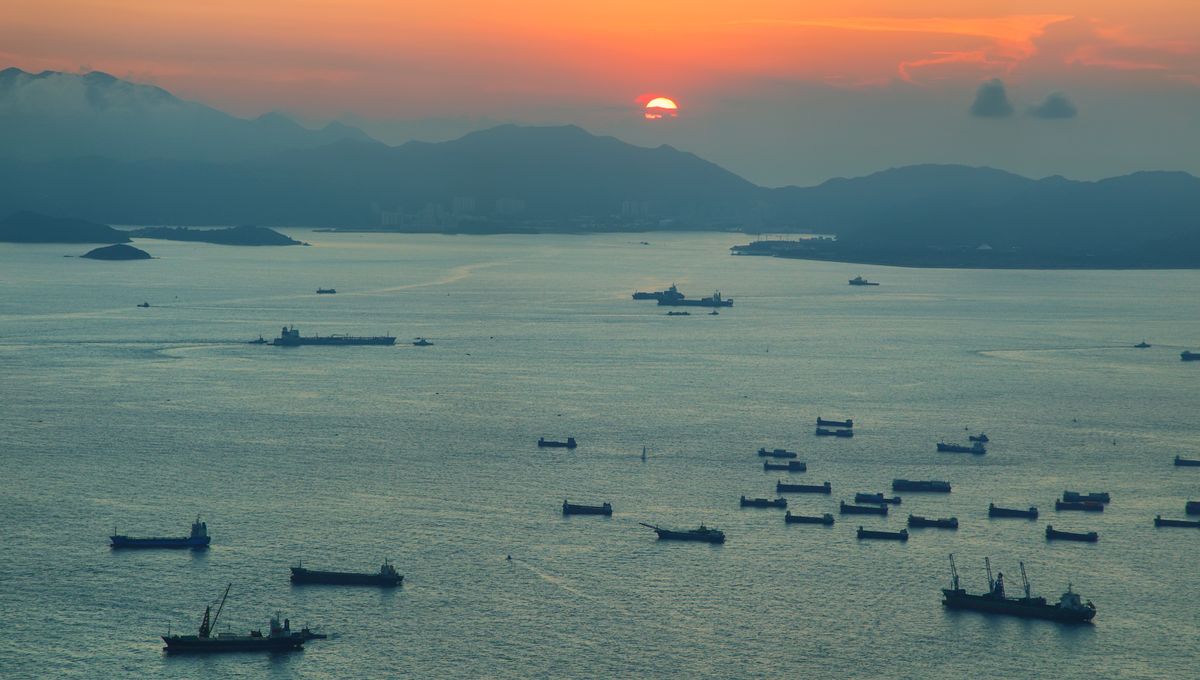
Seemingly unaware of the film Deep Blue Sea and countless B-movie tropes, China is set to build a new deep-sea laboratory that will be crewed by a team of resident scientists.
ADVERTISEMENT
In a recent announcement, the Chinese Academy of Sciences’ South China Sea Institute of Oceanology said they hope to complete the construction of a “Cold Seep Ecosystem Research Facility” in just five years.
The plan is being led out of Guangzhou, a gigantic port city northwest of Hong Kong on the Pearl River that leads to the South China Sea. There are a few components to the project, but the jewel in the crown will be a “deep-sea manned resident submarine laboratory”.
The new lab will have a maximum operating depth of 2,000 meters (6,560 feet) and is designed to accommodate up to six people, allowing them to live underwater for weeks at a time, according to The Global Times. It will reportedly feature a “scientific experiment cabin, a navigation and operation control cabin, a multifunctional detection cabin, a living quarters cabin, and an auxiliary power cabin.”
“The facility incorporates technologies from manned space missions and deep-sea submersibles, as well as life-support systems from mining operations. This ensures that scientists stationed underwater can work in a relatively comfortable environment for up to 30 days,” Li Chaolun, director of the South China Sea Institute of Oceanology and leader of the project, told the Chinese media outlet.
The aim of the ambitious program is to study cold seeps, which are sites where hydrocarbon-rich fluids, like methane and hydrogen sulfide, leak out of cracks in the seafloor due to geological activity or pressure changes.
These seepage sites host unique ecosystems that thrive on chemosynthesis, a process where organisms harness chemical energy from seep fluids seeping out of the seabed instead of relying on sunlight.
ADVERTISEMENT
But marine biodiversity is just one piece of the puzzle. Cold seeps also play a key role in the deep carbon cycle and could hold untapped biological resources. They may offer critical insights into Earth’s climate, as methane – a potent greenhouse gas – escapes from the seafloor and interacts with ocean and atmospheric systems.
It’s a scientific mission, but clearly, there’s more at stake. By focusing on this fascinating aspect of the seafloor, the facility aims to advance both abstract “fundamental research” and high-tech development with real-world applications for industry.
“This isn’t just about science – it’s about translating discoveries into industrial breakthroughs,” said Li, according to China Daily.
ADVERTISEMENT
“Cold seeps hold keys to understanding Earth’s carbon cycle, life in extreme environments, and the safe extraction of resources like methane hydrates. This facility will position China at the forefront of deep-sea science and green ocean economy innovation,” added Li.
The announcement by the South China Sea Institute of Oceanology underscores this ambition, emphasizing that the deep-sea research will bolster China’s position as a “maritime power” and support its goal of achieving carbon neutrality by 2060.
A number of recent developments suggest that China is positioning the deep sea as both a stage for scientific discovery and a platform for geopolitical influence. Just recently, the country deployed Meng Xiang – meaning “dream”– a colossal drilling ship built to pierce through 11 kilometers (6.8 miles) of seabed. If successful, this mission could unlock secrets of the Earth’s interior and the tectonic forces that shape our planet.
Source Link: China Is Building A Crewed Deep-Sea "Space Station" To Explore Bottom Of South China Sea